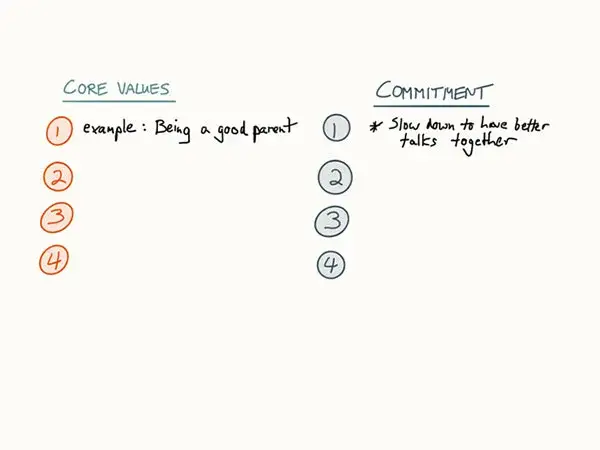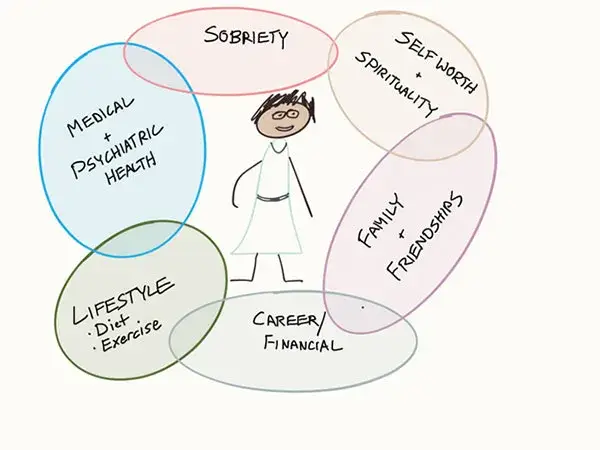ADDICTION SCIENCE
The path of moving from early recovery to long-term recovery involves the concept of ‘building.’ This means different things to different people, but overall involves a life worth living and a realization that relapse on substances will derail that life.
Recovery Capital is a term used to describe assets helpful in preserving your abstinence from drugs and alcohol. These assets include internal and external things as well as both concrete and abstract things. Some examples of Recovery Capital include the following:
- Stable employment
- Stable housing
- Sober relationships
- A sense of commitment or responsibility to others
- Adequate coping skills in the face of stressful situations
- Access to addiction treatment providers
- Access to a primary care doctor
- Stable general medical conditions (i.e. high blood pressure)
In your upcoming year, there is a great need for you to be building stronger and stronger Recovery Capital. This is especially important if you are in a Medication-Assisted Treatment program for opioid dependence and wish to taper off that medication and maintain your recovery. People with good Recovery Capital in multiple areas have a markedly better chance of staying clean from drugs once the medications are discontinued. The opposite of this is also true: people with poor Recovery Capital who are looking to taper down buprenorphine will have the odds stacked against them!
Recovery Capital Checklist
As an exercise to build a basic score of your Recovery Capital, please rate the following 15 topic areas with a score of 1-3. (1 – minimal / poor / disagree, 2 – moderate / average / somewhat agree, 3 – strong / good / agree)
___ I have a consistent job that I enjoy
___ My job is sufficient to support my basic costs of living
___ I will have a consistent place to live for the next 6 months
___ I feel safe in my home
___ My closest relationship is not in active addiction or alcoholism
___ I have a family who supports me being in recovery
___ My recovery is needed because other people depend on me
___ I can deal with stressful things as they come into my life
___ I have an addiction professional whom I see on a regular basis
___ There is a Peer Support person in my life, such as a sponsor or mentor, whom I see on a regular basis
___ I have a primary care or family doctor
___ I’m consistent about taking my relapse-prevention medications such as buprenorphine or naltrexone
___ I do not have easy current access to my drug-of-choice
___ My recovery means something to me
___ My mental health (such as depression or anxiety) seems to be managed adequately
Add up your total number from the scores above. A maximum score for this exercise in Recovery Capital is 45. How does your number compare to this? Do you notice specific topic areas that could benefit from some attention? Examples would be health areas or relationship areas.
Recovery Capital and Values
It is common to have some struggle with the above Recovery Capital checklist. The reason to do an exercise like this is to identify areas for growth. It is impossible to know how to change and improve if we don’t put the potential issues on the table! It can be useful to think of this as a values assessment and a commitment to those values. Through recovery, someone can have an updated sense of values that had felt lost during the cycle of addiction. Common values include a connection with family, sense of pride in your work, or a return to exercise in your lifestyle.
By understanding the topic of Recovery Capital and identifying areas for potential growth, you become stronger and more resilient in your recovery. Bumps will come your way and you will need to feel durable to stay healthy amidst those issues. By focusing on Recovery Capital now, it is easier to make some necessary changes.
The Whole Self
Your recovery will also encompass a few different life dimensions. People who have a significant change in one area but poor advancement in another are at heightened risk for falling back into old behaviors. In addiction treatment, we make a good effort to not play ‘whack-a-mole!’ A common phrase we say to people in recovery goes like this:
“We have many people who want to change their drug use. We have many people who want to change their lives.”
“To fully recover, you must change both!”
By building balance in your life and approaching your whole self, the risk of relapse continues to decrease. The following balance diagram is a template to start with this concept as you ponder your recovery. There are adjustments to this wheel that each person can make, but the overall concepts seem applicable to all who are seeking to heal.
Chronic Disease Acceptance
Some people describe their addiction as a sort of love. The power of alcohol or drugs can be so strong, that the substances somewhat get personified as being ‘alive.’ The bond with that love is quite powerful and recovery can be framed as a sort of grieving process. It is through this process that the person accepts the destruction that happens from the substance while also acknowledging the fantasy of using.
In other words, recovery is not really about saying “I don’t want to use or drink anymore!” It might be more feasible and true to say to yourself “I would love to use again, but I know that I just can’t!” This second phrase acknowledges the pull of the disease at the same time as the reality of choosing to remain sober.
Another way to think of this is through a concept of priorities and Recovery Capital, as outlined above. A typical mindset of recovery would involve having different priorities for today and an acknowledgment of numerous things that you will lose if you relapse. This helps you frame the present day as a different path than the past.
Moving Forward
Remember treatment goal #1 (retention) and treatment goal #2 (sobriety). One of the most important things you can do for yourself is to keep the dialogue going! Those who have recovery support arranged for themselves will heal and feel free from the grip of addiction. They are able to build Recovery Capital for themselves and feel proud of this process. If you feel you need more recovery supports, we need to process how to build those for you. By solidifying your recovery from alcohol or drugs, you are able to craft a healthy self. This gives you something to lose such that your efforts for continued recovery are more and more meaningful.


